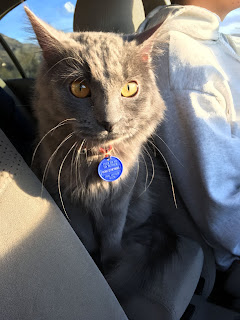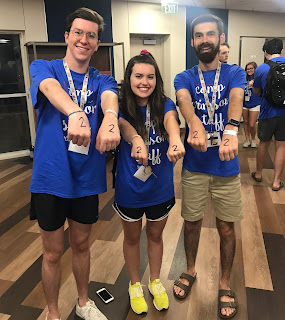Story Lab: Week 6 - Creative Style
Creative Styles Ted Talks
 |
| A pretty cat Source |
- Boundless freedom isn't helpful, you need restrictions to be creative = creative restraints
- Solutions must recognize limitations in order to innovate, like how to reach a goal when you know this specific thing needs work
- Joseph Campbell wrote about the hero's journey, a cycle every storybook hero goes through to complete her tasks and save the day. not every story hits all the points, but generally follows that pattern
- The order of the journey, same for Harry Potter to Odysseus
- call to adventure - hero starts off in their town, then leaves
- assistance - some figure helps the hero with advice or training
- departure - hero leaves for the mission
- trials - slaying monsters, challenges
- approach - face the biggest monster
- crisis - hero is dead or almost dead, but reborn
- treasure - hero wins and gets a power
- result - does hero succeed or not
- return - goes back to home life
- new life - how the hero has changed
- resolution - how everything gets straightened out
- status quo - things are normal again but different
- fictional worlds need a set of rules, just like real life, a world isn't complete unless it has restrictions
- you have to think about relationships between families, plants, animals, technology, transportation, communication when you create a fictional place
- 1984 depicts a pretty rough picture of society, and originated the term Orwellian to describe authoritarian and dictator-like societies
- Franz Kafka was an insurance clerk who wrote weird stories
- something Kafkaesque is irony of characters, tragicomic stories, and absurdity between power and individuals caught up in it.
- zombie nouns - nominalization, big fancy words that make a sentence harder to read because it strips away verbs and subjects
- in order to make your writing readable and enjoyable, take away nominalizations and instead use real normal nouns, concrete verbs, and clear structure.
- we are creatures of rhythm and repetition, so that's why we like songs so much
- poetry is just rhythm and repetition, making it easy to read because of its flow



Comments
Post a Comment